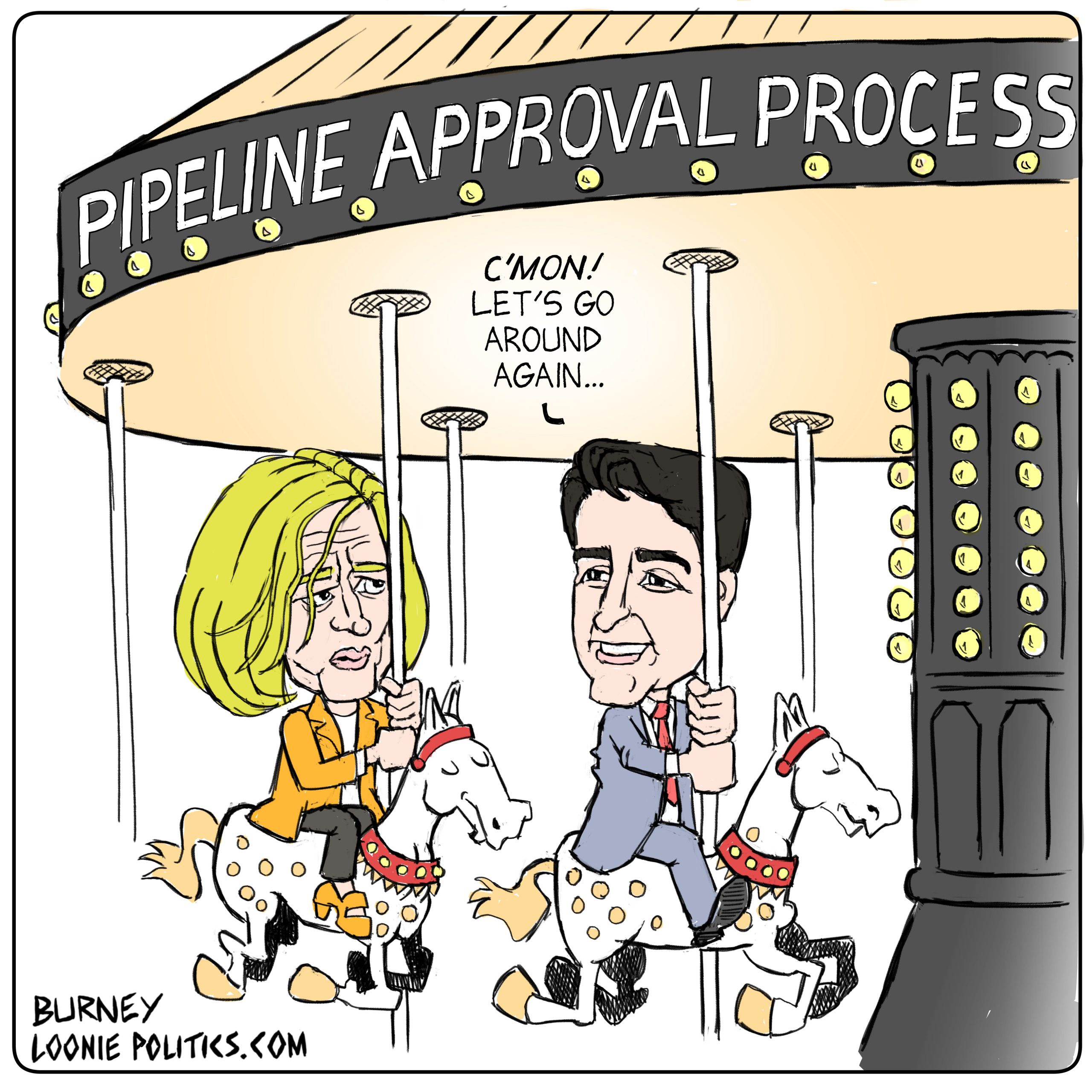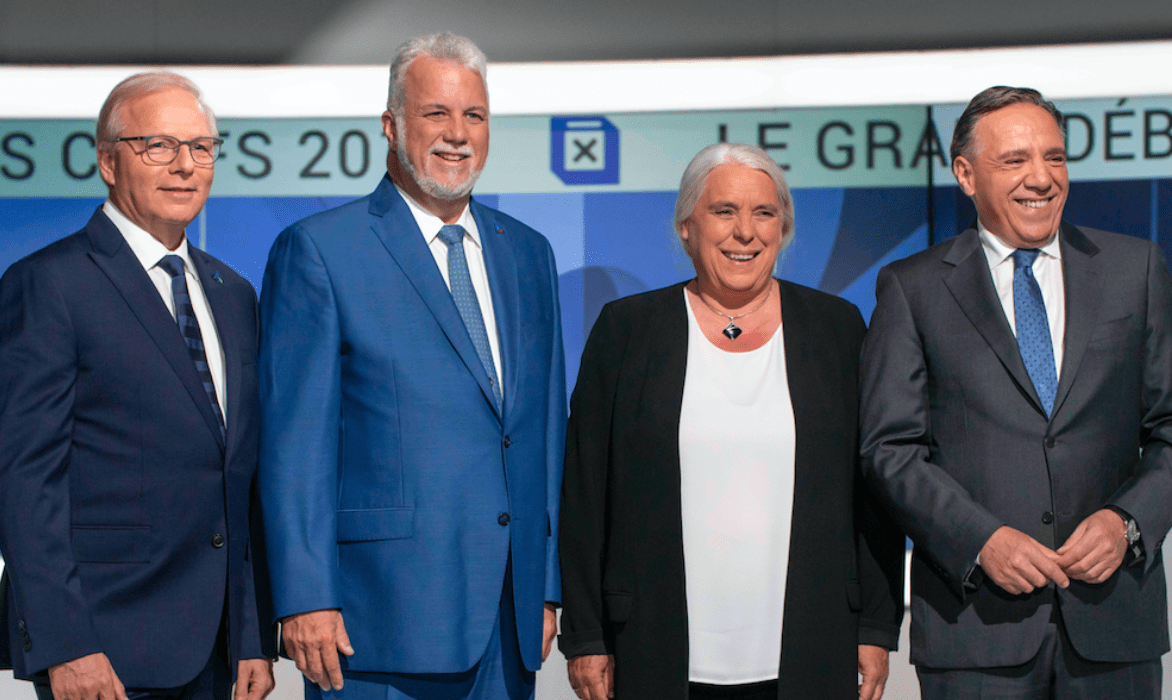Monday afternoon, Conservative leader Andrew Scheer released what he says are the steps that the federal government should take to get the Trans Mountain expansion pipeline back on track, along with steps that he would take should he form government in 2019 to ensure a better investment climate for energy projects in Canada. The problem, of course, is that many of his proposals are somewhat problematic, and based on some assumptions that may not bear out in reality particularly in terms of the timeliness of getting the project completed.
Scheer laid out four things that he believes should be done immediately that a Special Ministerial Representative be appointed to complete the Indigenous consultation process; that emergency legislation be passed in order to "affirm that Transport Canada's analysis of tanker traffic was sufficient and does not need to be duplicated by the National Energy Board"; that a stay of the Federal Court of Appeal ruling be requested and that the decision be appealed to the Supreme Court of Canada; and that they pass Senator Doug Black's bill to "clarify" that the pipeline is under federal jurisdiction.
Of those four recommendations, only the first is a likely possibility, and we've already heard rumours that the current government is looking for a retired judge or Supreme Court of Canada justice to play some kind of role in the consultation process, likely to ensure that it will meet the threshold for adequacy set by the Federal Court of Appeal. The government says that they will have their announcement on how they will proceed with the consultation in the coming days, but the reminder here is that consultation needs to be meaningful, and that part of what tripped them up the last time was the false notion that future conditions couldn't be imposed on the National Energy Board and the proponent to accommodate the concerns of those Indigenous communities along the pipeline route. That Scheer demands this be completed immediately and with the goal in mind to restart construction immediately seems to be at odds with the notion that it be done in a fair and comprehensive manner. It's probable that the government will have to make further accommodations, and potential alterations to the pipeline in order to fulfil the condition that demonstrates that the consultation was meaningful and not just a note-taking exercise.
The other three points, however, are hugely problematic. For starters, retroactive legislation is always a dicey proposition and opens up the government to all manner of litigation, and more importantly, if used to reverse-engineer legal disputes, the bigger risk is that the government brings the law itself into disrepute. In this case, the original NEB report stated that while there were unlikely to be significant adverse environmental effects, there would be significant adverse effects to the Southern resident killer whale population, and that will likely trigger the Species at Risk Act. I suspect that the government gave the NEB 22 weeks to redo this portion of the assessment in order to give an evaluation of the plans they've put into place around oceans protection and their protection plans for the orca population, which retroactive legislation would simply bulldoze over (and hence, open up new court challenges, especially as the original NEB pointed out that the adverse effects on the killer whales would also have a significant adverse effect on the "Aboriginal cultural uses associated with these marine mammals"). It wouldn't guarantee construction it may simply create bigger headaches.
Regarding the stay of the FCA decision and eventual appeal to the Supreme Court of Canada, Scheer has yet to articulate an error in law that he feels would be need to be overturned which he would absolutely need to articulate if a stay were to be granted. There's been no talk about that (which I suspect is why the government is simply moving ahead with correcting the deficiencies laid out by the FCA ruling). Also, Senator Black's bill is constitutional lunacy, and would simply create confusion where there is no actual jurisdictional issue with this pipeline by the sheer fact that it crosses a provincial boundary.
This having been established, Scheer's plans for the future won't really do what he hopes to do in terms of creating a better investment climate for energy projects. His plans include repealing the federal carbon price, repealing the current Bill C-69 that reforms the environmental assessment regime, ending the tanker ban on the north coast of BC, enacting legislation to "clarify the roles of proponents and governments that are involved in consultations; ensure that standing is only given to those with expertise or who are directly impacted by the project in order to end foreign-funded interference in regulatory hearings; and provide clarity to investors on approval timelines and schedules"; and to use Section 92.10 of the Constitution where necessary.
Repealing the carbon price won't create certainty given that most energy companies were asking for a carbon price in order to have certainty certainty they won't get from more expensive and onerous regulations. Bill C-69, while problematic, is designed to give more concrete timelines for project proposals, and has a mechanism to scope projects more thoroughly at the early stages to ensure that the right process is used so that proponents don't have to produce boxes of documents that go unread. It would seem to me that better effort could be spent trying to amend Bill C-69 to deal with its more problematic elements than promising to scrap it and returning to the system that the Conservatives put into place in 2012, which has seen a great many court challenges. As for the concerns about "foreign-funded interference," a great deal of energy has been spent by the Conservatives to build this bogeyman of American organizations who are simply shovelling money to Canadian activists in order to thwart resource development in Canada, rather than simply admitting that perhaps the plans and processes in Canada have been problematic and that not enough has been done to make them acceptable.
What Scheer seems to be ignoring is that the real message of the FCA ruling on Trans Mountain is that if the government had actually done the hard work that they were supposed to, both with the marine portion of the assessment and with the duty to consult, rather than trying to weasel their way out of it, they would have won their case. But so long as they keep trying to find a new bulldozer to ram projects through, they will find themselves in the centre of yet more court battles, which will have the opposite effect of providing certainty for investors.
Photo Credit: Jeff Burney, Loonie Politics








